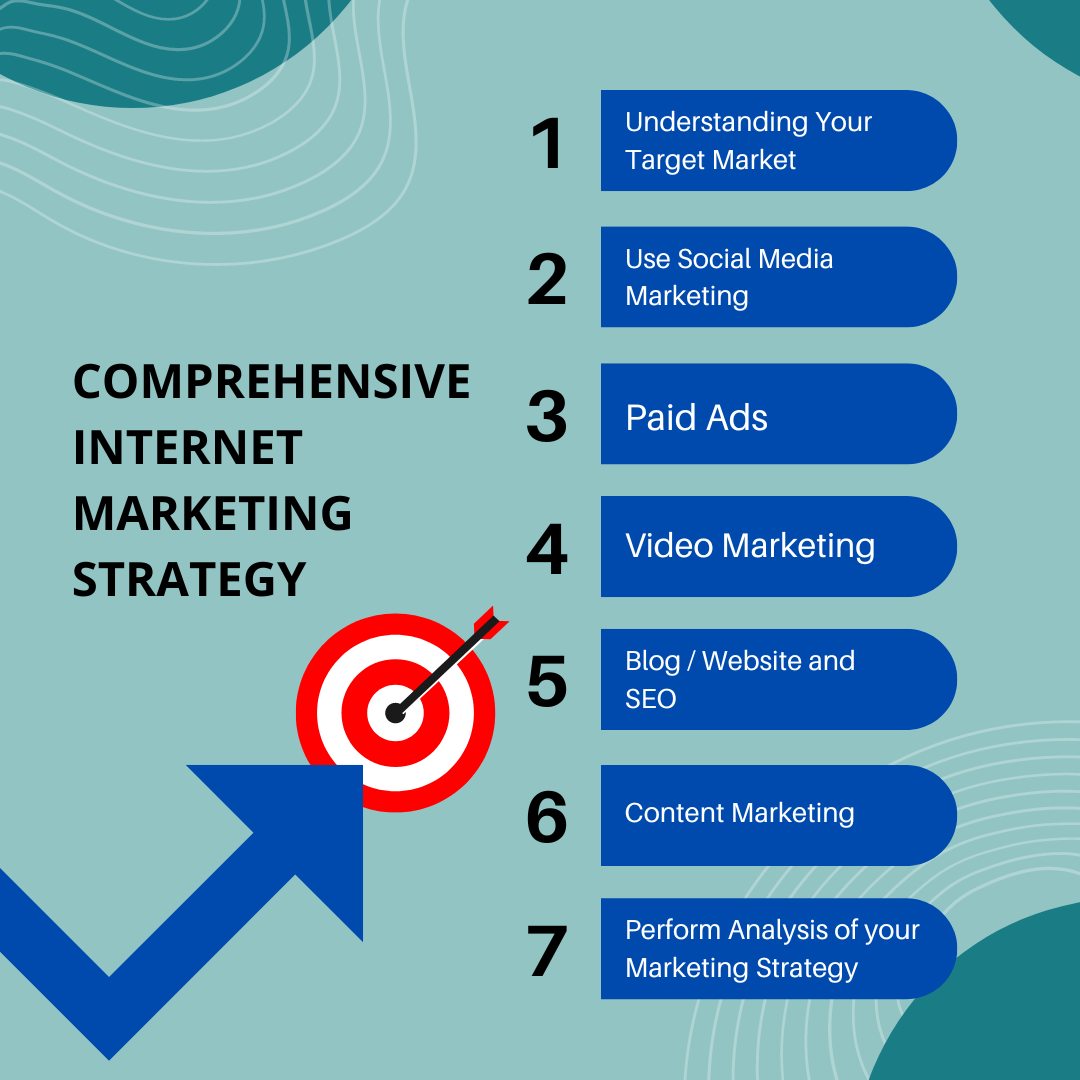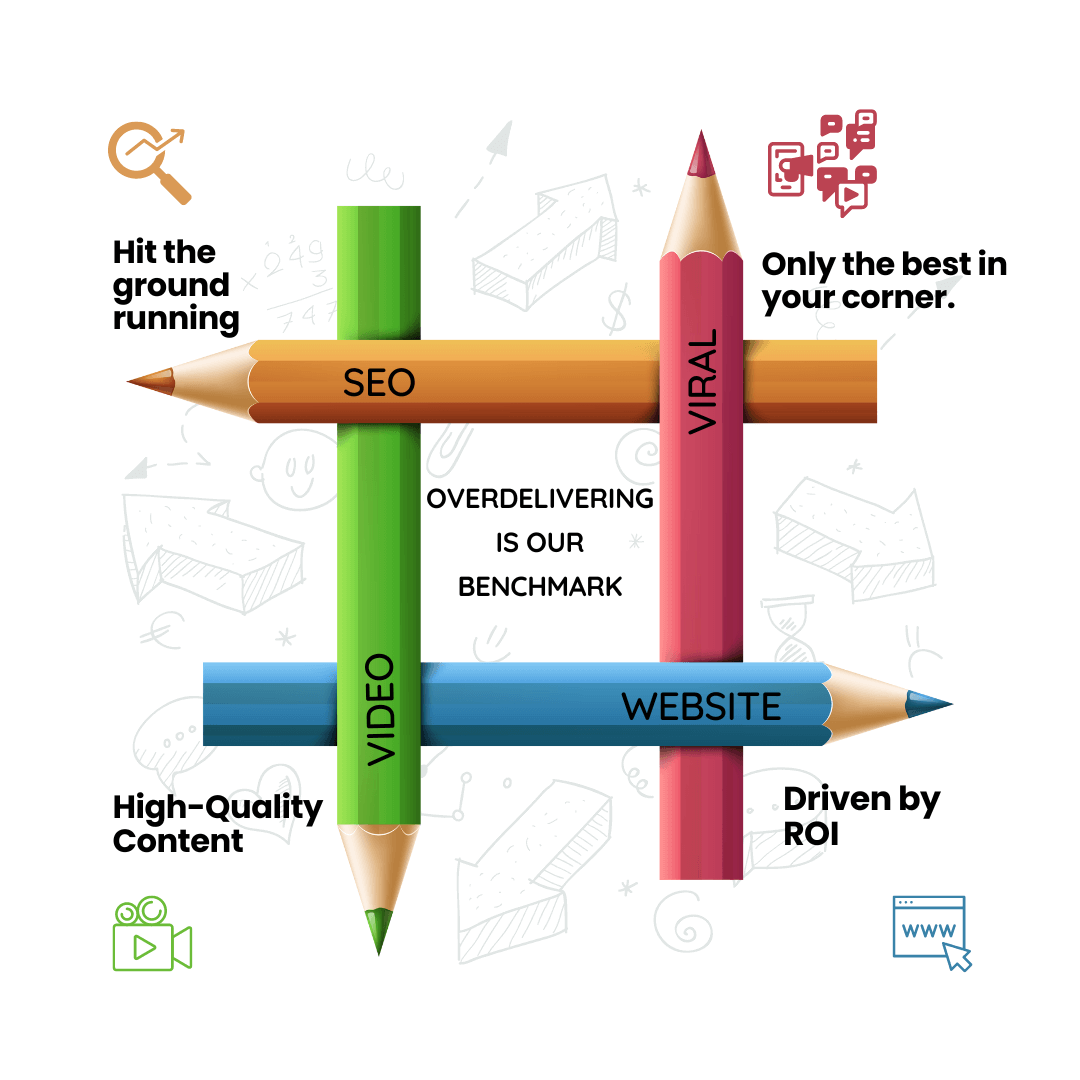The Best Digital Marketing Agency
Solving key challenges for businesses
Does your business appear at the top when someone searches for your company name? If it does, you're already one step ahead in seizing valuable opportunities. In today's fast-moving digital landscape, simply watching competitors outpace your success is not an option.
Digital marketing involves connecting with consumers through multiple online channels such as websites, mobile platforms, and social media. One of the biggest challenges digital marketers face today is standing out in an environment saturated with digital ads and content.
As one of the top digital marketing companies, we specialize in helping businesses harness the full potential of digital strategy. With over a decade of experience, our team of marketing professionals has successfully researched, documented, and implemented some of the most effective digital campaigns. We continuously monitor changes in search engine algorithms to ensure your business remains competitive and visible.
Recognized among the best digital marketing companies, we take pride in delivering measurable results. For businesses seeking trusted digital marketing companies in India, our expertise offers the edge needed to grow and thrive in a crowded digital space.
Unlock a 20% greater marketing ROI
with our digital marketing services
With our extensive internet marketing services, you can have whatever you require. This includes:
- Dedicated site manager supported by a group of experts in digital marketing.
- Personalised digital marketing plan based on your goals, industry, and company.
- Focus on increasing your marketing ROI.
- Complete funnel ROI tracking, provided through intuitive reports for easy monitoring.
Digital marketing includes key services such as Pay-Per-Click (PPC), Social Media Marketing (SMM), Search Engine Optimisation (SEO), and Search Engine Marketing (SEM). It's one of the most valuable investments for businesses aiming for long-term success. However, the fast-paced and complex nature of digital marketing can be challenging without the right guidance.
When implemented correctly, digital marketing agency services can drive impressive revenue growth. Poor execution, however, can lead to wasted spend and irrelevant traffic. As one of the top digital marketing companies in India, we position your brand for success. Recognized among the best digital marketing agencies in India, our digital marketing agency delivers strategies that truly perform.
What CNET Can Do for Your Business?
Ranked in top digital marketing companies in India
For many years now, we have been creating exclusive digital marketing solutions to accelerate our clients' short- and long-term success. Our outstanding team of global digital marketing experts develops plans that are focused on achieving specific goals and result in exceptional revenue for our customers. We'll also get great results for you.
There are many best digital marketing agencies in India available these days, so it might be difficult to decide which one to rely on with your company. Unlike other online marketing agencies, ours is a full-service digital marketing firm, and we have over 500 case studies to show our clients' achievements, so we can back up our claims. With our digital marketing services, we have helped our clients make great revenue.
Our company is committed to delivering cost-effective solutions tailored to fit businesses of all sizes and budgets. As a trusted digital marketing services agency, we offer a comprehensive range of marketing and advertising services designed to meet diverse business needs. Whether you're a startup, small business, or a large enterprise aiming to scale, our team of experienced strategists is here to guide your growth. Recognized among leading online marketing agencies, we also operate as a digital marketing consulting agency, helping clients navigate the digital landscape with smart, results-driven strategies.
Powerful Digital Marketing Solutions
Social Media Marketing (SMM)
If you're new to social media marketing, you may integrate networks like LinkedIn and Facebook in one location using platforms like HubSpot. These social media platforms will be used by many marketers to develop a viral campaign. A viral marketing tactic involves joining forces with a well-known content producer or joining a trend that is currently popular with a large audience.
Search Engine Optimization (SEO)
The goal of SEO is to improve your website's "ranking" on search engine results pages. To attract qualified traffic, SEO can be approached in a variety of ways. The best factors to take into account when optimising a web page for search engines are inbound links, mobile friendliness, and content quality.
Pay Per Click (PPC)
Pay per click (PPC) is a strategy for increasing website traffic that involves compensating a publisher each time one of their ads is clicked. Google Ads, one of the most popular PPC models, lets you pay for prominent positions on Google's search engine results pages. Facebook, Twitter, and LinkedIn are more platforms where PPC can be used.
Blog Marketing
Blog marketing is the process of using a blog to connect with the target market for your home-based business. For their website and blog, many business owners choose a blogging platform like WordPress. As blogging has become more popular and accessible, many people have turned it into a business. For instance, some culinary blogs are full-fledged companies.
Email Marketing
Even while marketing automation and other digital marketing strategies can improve email marketing, it is a tried-and-true method all by itself. You want your campaign to be seen by your potential customers as more than just a means of advertising. Email marketing was cited as their most successful lead generating by 89% of experts questioned.
Google Marketing
A platform for online analytics and advertising that Google developed is called the Google Marketing Platform. To assist you in creating better digital media and consumer experiences, it combines Google Analytics 360 Suite and DoubleClick Digital Marketing. The Platform helps you to deliver more effective and relevant marketing while while ensuring that the privacy of your customers is upheld.
Do You Have Any Questions?

Our Clients


































